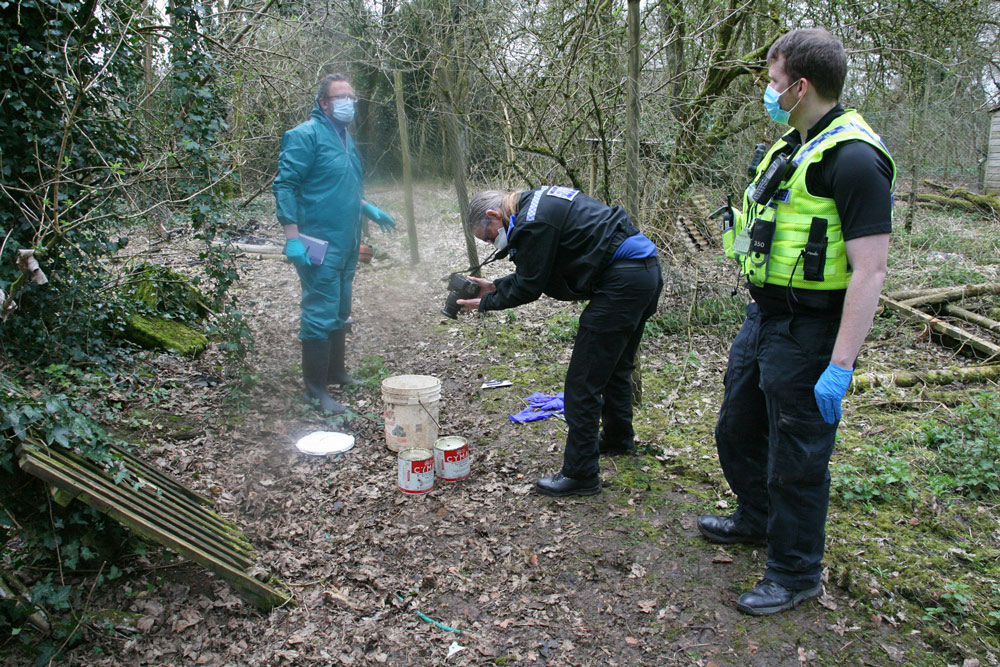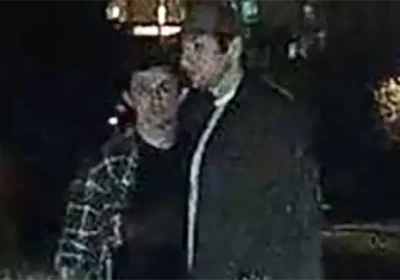A DORSET gamekeeper has admitted being in possession of the remains of birds of prey, as well as keeping banned pesticides, and breaches of shotgun and firearms licences.
The remains of nine common buzzards – including six confirmed shot and one poisoned – were discovered after a search of the Wimborne St Giles home of Paul Allen, a former gamekeeper at a nearby estate.
Firearms being kept in breach of licences were also discovered.
Earlier this month, 54-year-old Allen, of Brockington Down, pleaded guilty to seven charges at Weymouth Magistrates’ Court.
They were two charges of possession of six dead common buzzards and remains of three more in March 2021; three charges of the keeping of banned pesticides in March 2021; and two charges of failing to comply with conditions of shotgun and firearms certificates in March 2021.
He will be sentenced on February 16.
After the hearing, the RSPB called the case ‘shocking’ and appealed for greater regulation of pheasant shoots to address the climate and nature crises and reduce crimes against birds of prey.
The case against Allen began in November 2020 when a member of the public found a dead red kite lying close to a dead rat on a private pheasant shoot on the Shaftesbury Estate, near Wimborne St Giles.
Dorset Police began investigating and later, toxicology examinations confirmed the presence of the highly toxic pesticide bendiocarb in both species.
Bendiocarb, which in some forms has now been banned, was persistently abused for the illegal poisoning of birds of prey and other animals, the RSPB said.
A multi-agency search of Allen’s home and surrounding land was undertaken in March 2021, led by Dorset Police and assisted by the National Wildlife Crime Unit (NWCU), Natural England and RSPB Investigations.
There, officers discovered six dead buzzards near the remains of a bonfire, including one that was suspected as having been shot within the preceding 24 hours.
Two more shot buzzards found during the search.

Photo: RSPB
An avian specialist at the Natural History Museum examined the remains of the fire, which was collected by investigators and confirmed the presence of at least three further buzzards.
A banned product containing the pesticide bendiocarb was found in Allen’s vehicle and in an insecure outbuilding, along with two bottles of strychnine: another deadly poison, banned in 2006.
Two full tins of Cymag – a lethal fumigant pesticide banned since 2004 – were also found outside under an upturned pond liner.
All birds of prey are protected under the Wildlife and Countryside Act 1981 and killing them is against the law, punishable by an unlimited fine and/or jail.
Thomas Grose, RSPB investigations officer, said: “Finding so many illegally killed buzzards was truly shocking.
“This is yet another example of a gamekeeper being prosecuted in connection with raptor persecution offences on land managed for gamebird shooting.
“In addition to all the agencies involved in this case, we would particularly like to thank Claire Dinsdale, formerly of Dorset Police, and currently with the NWCU, an exemplary officer who has devoted her career to tackling wildlife crime.”
The RSPB’s Birdcrime report for 2021 found over two-thirds of confirmed raptor persecution incidents were in relation to land managed for gamebird shooting.
Dorset was named the county with the second-highest number of confirmed raptor persecution incidents in the UK that year.
Mark Thomas, UK head of investigations at the RSPB, added: “Tragically, only days into the New Year, we already have yet another highly significant bird of prey persecution case before a court.
“This is a national problem which requires urgent government attention and solutions, as identified in their own report published in December 2021.
“In the time of a climate and nature emergency there can be no place for raptor persecution.
“We are therefore calling on Government to better enforce existing regulations relating to pheasant shoots, and to consider the introduction of new sanctions to act as a meaningful deterrent to such appalling crimes.”










Leave a Reply